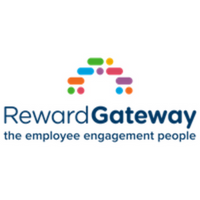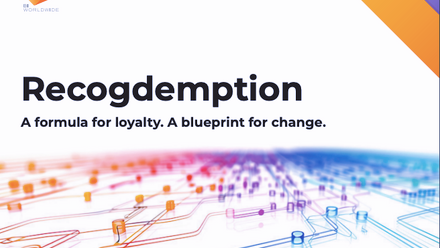Five ways to bring financial wellbeing (or television moments) to your employees

This was my first real lesson about managing a budget, and luckily one that wasn't too painful as I wasn't kicked out of my university dorm and I had more than enough food to eat at the school cafeteria. From then on, I knew exactly why and how to manage a budget.
But how many of our employees have learned this important financial lesson, what I call my "television moment"? Or, on the flip side, how many haven't, instead getting themselves into debt from not being able to manage their budgets?
According to the TUC, the average UK household owes £12,887, not including their mortgage, which is almost 50% of the average annual UK salary of £27,000. No wonder over 22 million UK workers, or 7 in 10 employees (71%), have felt stress or financial strain over the last five years.
This stress can lead to a variety of effects on your employees' personal lives, including not being able to sleep, poor eating habits, anxiety, anger and depression to name a few. And all of these can impact on the employees' ability to perform at work, creating additional challenges and issues for them, and for you, to deal with.
It's for this reason that workplace wellbeing, which includes financial wellbeing, has moved from a "nice to do" to a "have to do". By prioritising wellbeing you can:
- Reduce absenteeism and decrease business costs
- Build a healthier, more engaged workforce
- Improve your employee value proposition
And it's not just for the benefit of the company, employees want it as well. According to research from Reward Gateway, over half (52%) of employees agree that they would choose a company that cared about their wellbeing over a company that pays 10% more.
However, according to this same research, only 23% of companies participating offer a financial wellbeing programme. This creates a gap between what employees want and what companies are delivering, a gap that needs to be filled to support our employees and our companies.
Here are five tips to help you build a financial wellbeing programme:
1) Understand your employees' needs
My first tip is to start by asking the question "why?" - why do your employees want and need financial wellbeing? Do they need financial education, financial savings products, pension advice or something else? Thanks to the new emphasis on financial wellbeing, there's a variety of companies out there with products and services to help you, but make sure you're talking to the ones that have what it takes to specifically help your employees.
2) Find some quick wins
I'm a big fan of quick wins, especially in this area, for sometimes there are some simple and easy things you can do to get a headstart on your company's financial wellbeing journey. They include:
- Informational - find ways to educate your workforce on some of the basics of financial wellbeing. If you don't yet have a budget, you can point them to free websites and resources, and if you do have a budget, you can bring in experts to conduct sessions or a wellbeing platform. Both will help your employees understand what to do to pay off debt and/or manage it in a more effective way going forward.
- Savings - find ways to help your employees save money, reducing their spend and thus having more to pay off their debt. If you don't yet have a budget, you can often negotiate local savings, and if you do have a budget, you can leverage the savings from an employee discounts platform. By doing this you can help your employees make their money go further.
3) Create a flexible programme
To create a successful financial wellbeing programme you need to recognise and take into consideration that each employee has unique desires and needs, and, in order to gain buy in, it's much better to give them solutions that provide choice and flexibility.
Travis Perkins, who I interviewed for "Build it: The Rebel Playbook for Employee Engagement", shared their story of their unique and comprehensive suite of solutions aimed at meeting the needs of their diverse workforce. By basing their solutions around what they call the "life journey", they offered the "right" solutions at the "right" times.
4) Create something long lasting
A positive change I've seen over the years in all areas of wellbeing, is the move from reactive and "quick fixes" to helping employees live and feel better by making realistic, sustainable lifestyle changes. Financial wellbeing is not about crisis management and fixing problems, it's about helping your employees live better and feel better by facilitating sustainable lifestyle changes that really make a difference.
Keep this in mind as you create your wellbeing programme, asking yourself, will this create "stickiness", something that will help your employees today, tomorrow and in the future.
5) Put a spotlight on it
Last, but not least, is to put a spotlight on whatever you do with your financial wellbeing programme, making sure your employees are aware of and engage with it. The key is the "WIIFM" (what's in it for me), helping them understand how what you've put in place will help them.
From simple posters or letter drops announcing lunchtime learnings sessions, to posts on your company intranet, create a communications campaign that will grab their attention and bring them to your message.
So in ending, let me again encourage you to take that first or next step into financial wellbeing, creating something that will support your employees and drive the success of your business.
Debra Corey is group reward director at Reward Gateway.
This article was provided by Reward Gateway.
Supplied by REBA Associate Member, Reward Gateway
We help the world's leading companies with an employee engagement platform.







